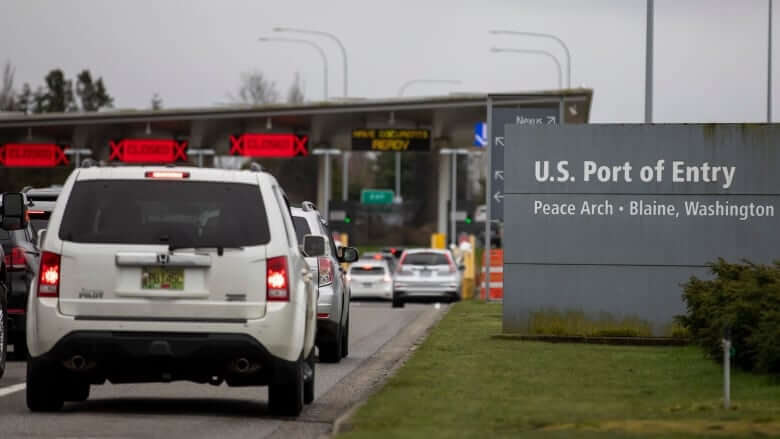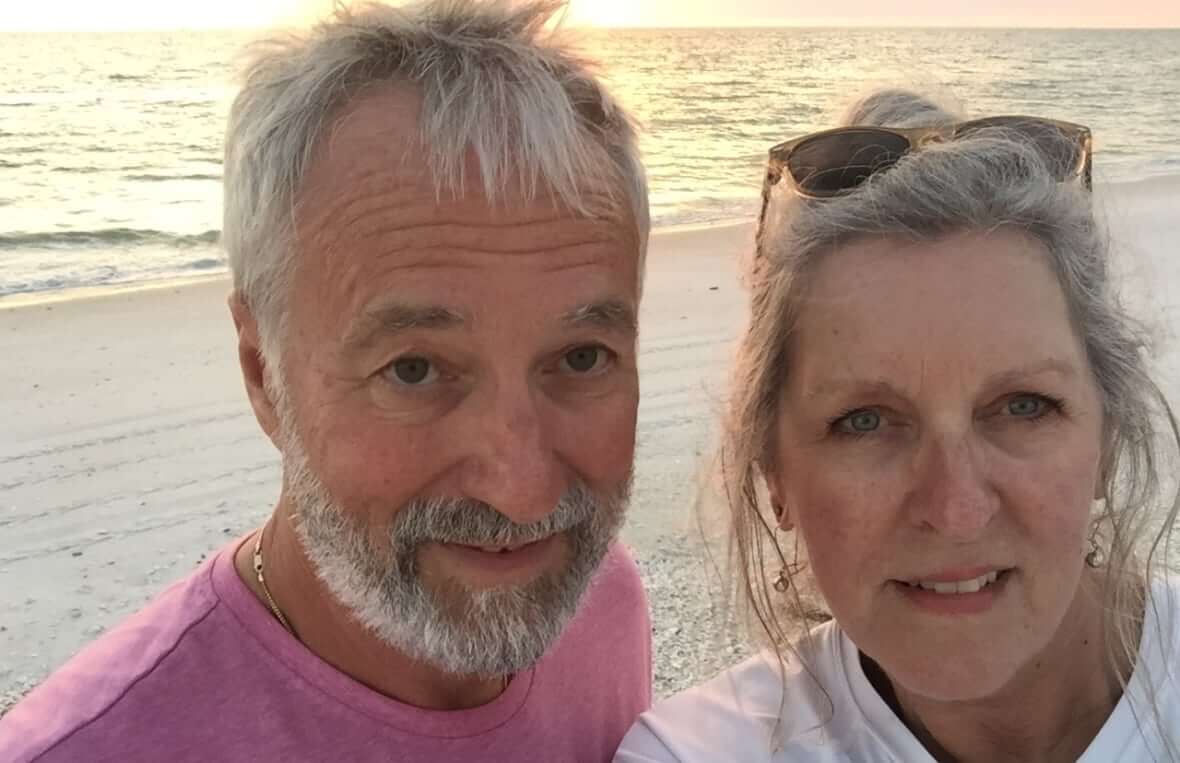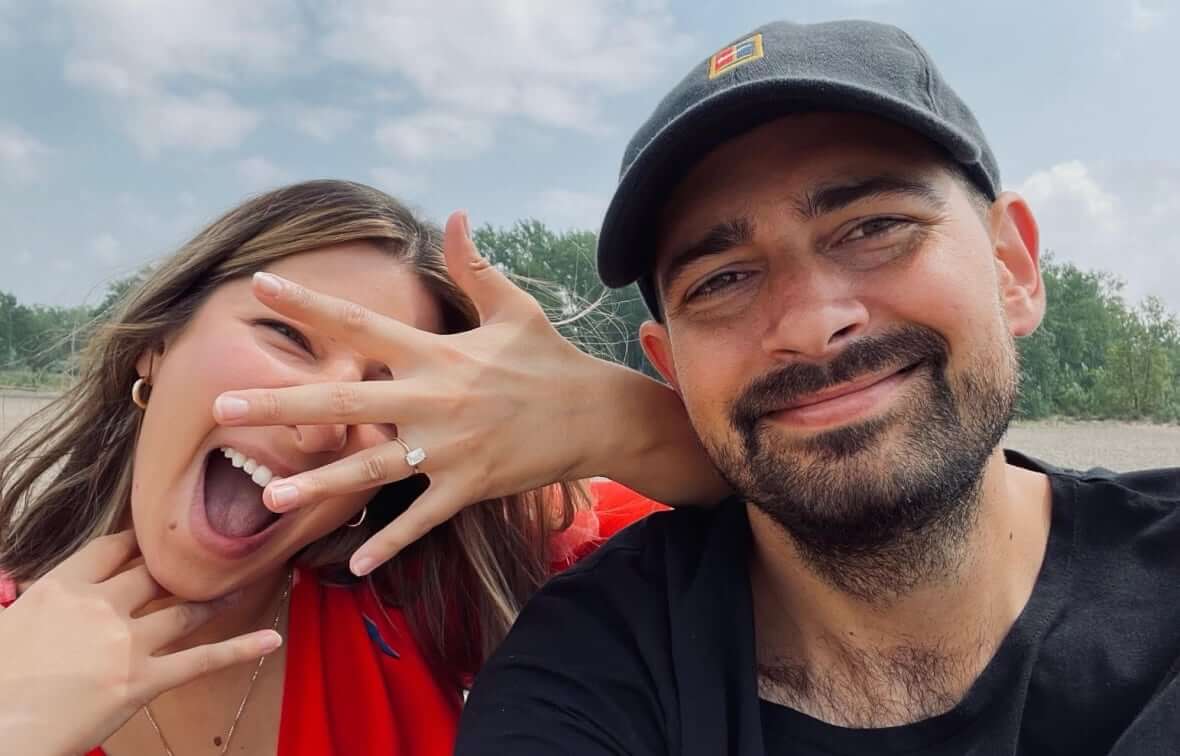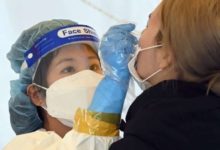U.S. confirms it will accept Canadian travellers with mixed vaccines

Canadians with mixed vaccines and U.S. travel plans can breathe a sigh of relief.
Following weeks of speculation, the United States confirmed late Friday it will accept mixed vaccines when new rules kick in on Nov. 8 requiring that foreign travellers entering the U.S. be fully vaccinated.
Individuals inoculated with any combination of two doses of a COVID-19 vaccine authorized by U.S. regulators or the World Health Organization will be considered fully vaccinated, the U.S. Centers for Disease Control and Prevention (CDC) told CBC News.
WHO-approved vaccines include Moderna, Pfizer, AstraZeneca and its Indian-made counterpart, Covishield. So travellers with any combination of these vaccines will be allowed to enter the U.S.
The CDC does not recognize mixing COVID-19 vaccines but said it updated its guidance to reflect growing global acceptance of the practice.
“While CDC has not recommended mixing types of vaccine in a primary series, we recognize that this is increasingly common in other countries so should be accepted for the interpretation of vaccine records,” CDC spokesperson Kristen Nordlund said in an email.

Millions of Canadians have mixed doses of COVID-19 vaccines. When the U.S. recently announced it would impose a vaccination requirement for travellers entering by both land and air, many Canadians with mixed doses worried they might soon be barred from entering the country.
“We felt kind of blindsided,” said snowbird, Ingrid Whyte of Toronto. Following Canadian government guidance, she and her husband, John, each got one dose of Covishield and a second dose of Pfizer.
‘We did all the things we were supposed to do in terms of vaccinations,” Whyte said.
The couple had booked a flight to Florida for Nov. 17, but cancelled it due to concerns over their mixed vaccines. They’re now relieved to hear their vaccine combination won’t be an issue when entering the U.S.
“We are thrilled,” Whyte said. “I wish it could have been a little sooner. It would have allowed people to plan a little bit more effectively. But in the long run, it’s great news.”
It’s also good news for Petar Sesar of London, Ont., who has a mix of Moderna and Pfizer.

Sesar’s fiancée, Mara Bakula, lives in Cleveland. Sesar welcomed news this week that the U.S. land border will reopen on Nov. 8 to non-essential travellers, as he prefers to drive instead of fly to Cleveland.
However, he worried he might soon have no way of getting to the U.S. if the country rejected his vaccine mix.
“That was a very scary moment,” he said. “It felt like house arrest of sorts, like now I [may] have no option.”
Earlier this year, the CDC stated online that a mix of two mNRA vaccines, Moderna and Pfizer, would be accepted in “exceptional situations.” But Sesar didn’t rest easy until he learned that the CDC had approved his exact combination.
“It is unbelievable,” he said. “It is such a relief. I share the relief with millions of [Canadians].”
What are the other rules for entering the U.S.?
When the new U.S. travel rules kick in on Nov. 8, travellers will still be on the hook for one or more COVID-19 tests.
Along with showing proof of vaccination, air passengers will still have to show proof of a negative antigen or molecular test taken within three days of boarding their flight to the U.S.
Canadians entering by land won’t have to take a COVID-19 test. However, when returning to Canada, all non-essential land and air travellers must show proof of a negative molecular test.
That return test has caused consternation for Canadian daytrippers to the U.S. No matter how short their trip, they will be on the hook for a molecular test, such as a PCR test, that often ranges from $150 to $300 US and can take 24 hours before results are available.
To eliminate the wait for test results, the federal government says Canadians can take their test in Canada, travel to the U.S. and then use that test to return, as long as it’s less than 72 hours old.
But that solution doesn’t eliminate the high cost of the test.
At a news conference on Friday, Ottawa said that according to the latest data, less than one per cent of fully vaccinated travellers tested positive after being randomly selected to take a COVID-19 test upon arrival. Even so, Chief Public Health Officer Dr. Theresa Tam said Canada’s pre-arrival test requirement will remain for now for both unvaccinated and vaccinated travellers.
“We’re still at the top of that fourth wave. We’re in a situation in Canada where our health systems are still very fragile,” she said. “We need to take a precautionary approach in the next little while, and we’ll continue to evaluate the situation.”
The U.S. has yet to say how it will deal with child travellers too young to get vaccinated. The CDC told CBC News it’s working to establish an age requirement for its vaccine mandate.








Redes Sociais - Comentários